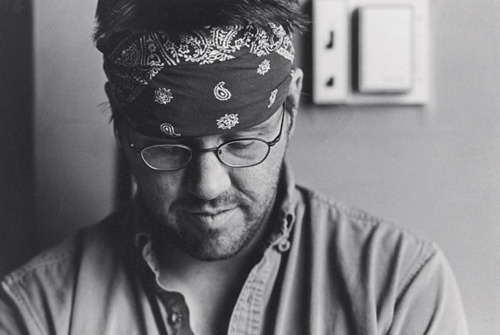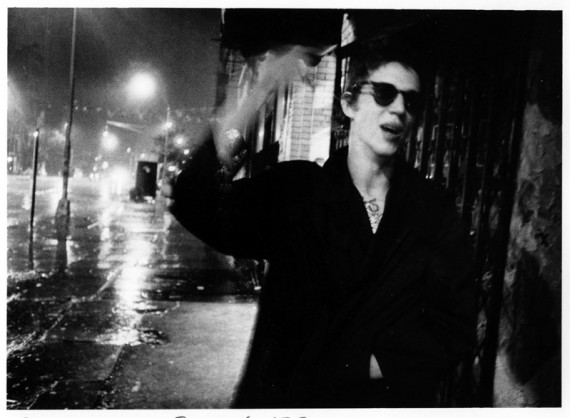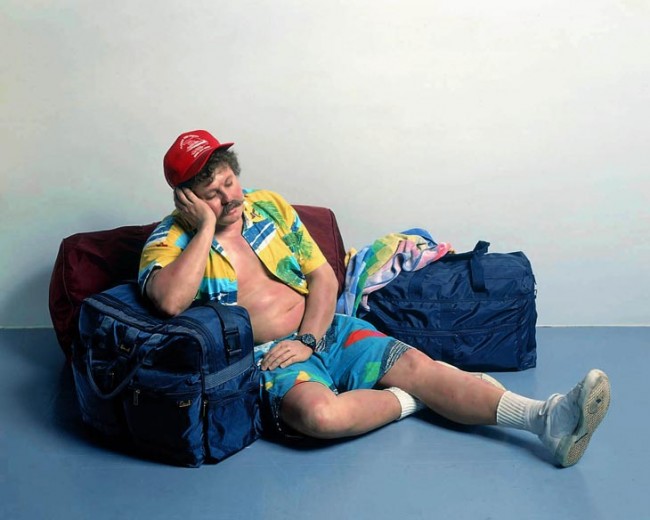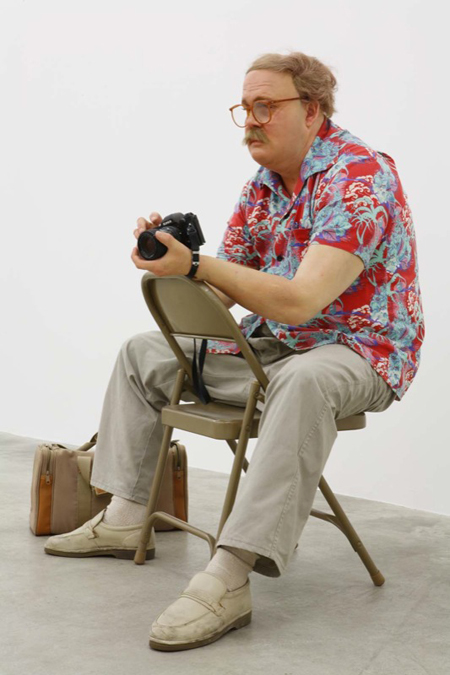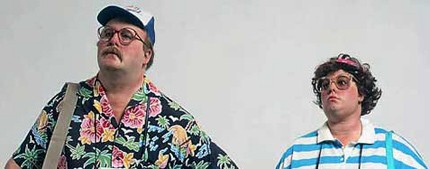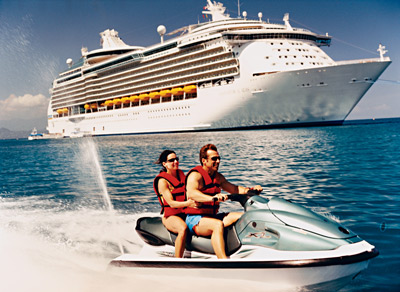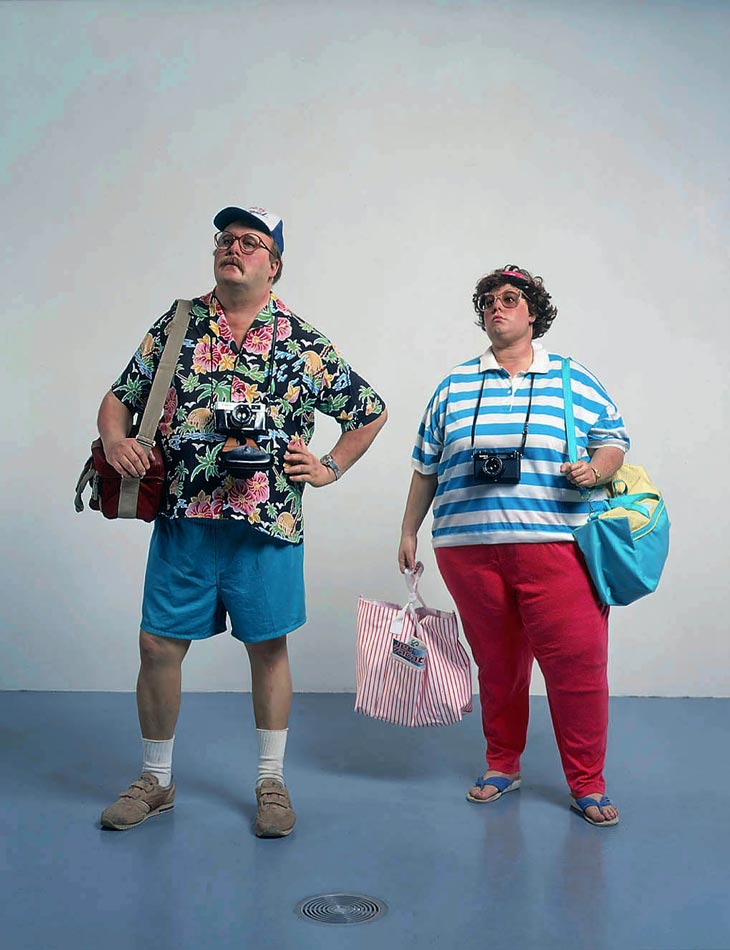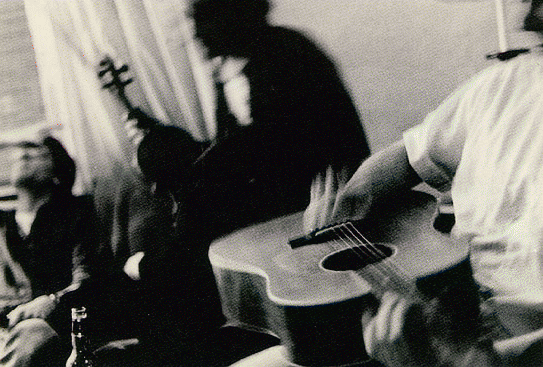
In Greg Kot’s Wilco: Learning How to Die, he articulates what so many people can’t seem to do in regards to “alt-country.”
To a new generation of listeners, Uncle Tupelo (Jeff Tweedy’s first major band) may as well have been pioneers; their blend of folk, country, mountain soul, punk, and Crazy Horse-style classic rock had little to do with the arena-ready alternative rock of Nirvana, Pearl Jam, Smashing Pumpkins, the Red Hot Chili Peppers, and Stone Temple Pilots– Rather than dimming their appeal, however, the sense that Tupelo had emerged from a deep American tradition only enhanced their status as “serious” artists within a core group of committed fans, writers, and record labels.
Farrar and Tweedy were among the latest wave of rock ‘n’ roll kids inspired by hard-core country’s enduring virtues: a stripped-down instrumental attack, devastatingly direct lyricism, whiskey-and-cigarette-fueled emotion– Compared with the music coming out of 1990s Nashville in the guise of suburban cowboys and cowgirls such as Garth Brooks and Shania Twain who mimicked the mainstream rock and pop of the 1970s, the bands and record labels lumped into the alt-country bin sounded like the second coming of Hank Sr. and White Lightning-era George Jones.
Tupelo was far from radio-format country or rock.
These “hardcore country virtues” of “devastatingly direct lyricism” and “whiskey-and-cigarette-fueled emotion” resonate in the music I listen to today. Most notably Clay Nightingale, The Tumbleweeds, Micah P Hinson, as well as Okkervil River’s debut album Don’t Fall In Love With Everyone You See.
Though much of what I listen to shares elements with the above description, my introduction to this sound was in a reverse chronology because I started with Wilco’s “progressive/modern” albums Yankee Hotel Foxtrot and A Ghost is Born in the fall of 2004. Following the gradual takeover those albums did to me, I backtracked through their discography and eventually landed on Uncle Tupelo’s work.
If you have been keeping Tupelo at bay (like I know some have), I’ve picked out some stand out tracks that might pull you into their work.
No Depression (1990)
One of the many songs about loss, isolation, and reliance on a bottle- Flatness
[audio:http://www.rickstate.com/wp-content/uploads/2011/12/Uncle-Tupelo_No-Depression_10_Flatness.mp3|titles=Uncle Tupelo_No Depression_10_Flatness]
Whiskey Bottle lyrics.
[audio:http://www.rickstate.com/wp-content/uploads/2011/12/04-Whiskey-Bottle.mp3|titles=04 Whiskey Bottle]
This trouble Farrar describes as “seeing one too many dollar sign smiles” and “people chasing money and money getting away” makes you understand why he’d prefer a bottle and his guitar.
Still Feel Gone (1991)
Again, the reiteration of how cheap other people can make life feel- Nothing
[audio:http://www.rickstate.com/wp-content/uploads/2011/12/Uncle-Tupelo_Still-Feel-Gone_04_Nothing.mp3|titles=Uncle Tupelo_Still Feel Gone_04_Nothing]
Still Be Around lyrics.
[audio:http://www.rickstate.com/wp-content/uploads/2011/12/09-Still-Be-Around.mp3|titles=09 Still Be Around]
After hearing tracks like Still Be Around and Whiskey Bottle, it’s easy to see how the critics from the early 1990s believed that Farrar was the richer, deeper songwriter. But the first murmurings of Tweedy’s talent even coming close to Farrar surfaced after much praise from the single Gun.
[audio:http://www.rickstate.com/wp-content/uploads/2011/12/08-Gun.mp3|titles=08 Gun]
March 16-20, 1992 (1992)
March provided covers of old traditionals like the Tweedy’s take on I Wish My Baby Was Born-
[audio:http://www.rickstate.com/wp-content/uploads/2011/12/Uncle-Tupelo_March-16-20_-1992_09_I-Wish-My-Baby-Was-Born.mp3|titles=Uncle Tupelo_March 16-20_ 1992_09_I Wish My Baby Was Born]
and Farrar’s rendition of Moonshiner (below) as well as originals.
[audio:http://www.rickstate.com/wp-content/uploads/2011/12/14-Moonshiner.mp3|titles=14 Moonshiner]
When the rock labels were hoping that Uncle Tupelo would keep following the evolution of tracks like Gun and hopefully produce something that could contend on the alternative radio markets alongside Nirvana and Pearl Jam, Uncle Tupelo decided to, as manager Tony Margherita was quoted as saying in Kot’s book, say a “big ‘fuck you’ to the rock scene, and we knew it would cost us.” And Farrar went on to say “This should insulate us from that industry bullshit, people looking for the next Nirvana.”
I particularly like these quotes (and the decision to make March) because how many times have you discussed whether or not an artist owns their music and controls their artistic direction and such? To a small degree, Tweedy has made some minor concessions to labels/industry, but Farrar on the other hand has NEVER wavered. This album is a great example of talented, yet broke, artists disregarding industry trends and maintaining a steadfast commitment to making honest, truthful work.
A few originals from March: Tweedy’s Black Eye–
[audio:http://www.rickstate.com/wp-content/uploads/2011/12/13-Black-Eye.mp3|titles=13 Black Eye]
and Farrar’s political Criminals– lyrics.
[audio:http://www.rickstate.com/wp-content/uploads/2011/12/Uncle-Tupelo_March-16-20_-1992_04_Criminals.mp3|titles=Uncle Tupelo_March 16-20_ 1992_04_Criminals]
March was followed up by Tweedy and Farrar’s final collaboration and is considered to be their most complete album, Anodyne (1993). The album features the differing perspectives and foreshadows what is to come.
Farrar’s Slate– lyrics.
[audio:http://www.rickstate.com/wp-content/uploads/2011/12/Uncle-Tupelo_Anodyne_01_Slate.mp3|titles=Uncle Tupelo_Anodyne_01_Slate]
and Tweedy’s call for togetherness in The Long Cut.
[audio:http://www.rickstate.com/wp-content/uploads/2011/12/18-The-Long-Cut.mp3|titles=18 The Long Cut]
Farrar’s attitude continues with the title track as well as Fifteen Keys lyrics.
Anodyne lyrics.
[audio:http://www.rickstate.com/wp-content/uploads/2011/12/Uncle-Tupelo_Anodyne_09_Fifteen-Keys.mp3|titles=Uncle Tupelo_Anodyne_09_Fifteen Keys]
While Tweedy attempts to poke humor at the once serious tones of condemnation in We’ve Been Had.
[audio:http://www.rickstate.com/wp-content/uploads/2011/12/Uncle-Tupelo_Anodyne_08_Weve-Been-Had.mp3|titles=Uncle Tupelo_Anodyne_08_We’ve Been Had]
After a childhood together and over 8 years playing music in tandem, Farrar stated he could no longer work with Tweedy. When Margherita tried to talk Farrar down about breaking up citing artistic potential and commercial success, Kot writes:
For Farrar none of that mattered. “Commercial success wasn’t the reason that we started the band,” he says, “so that wasn’t any reason to keep it going forward. That’s the wrong reason to start a band, and the wrong reason to continue a band. It had run its course.”
So they broke up with Farrar creating Son Volt and Tweedy rounding the remainding Tupelo members and forging ahead with Wilco.
Also Wilco: Learning How to Die includes over 50 pages hating on the entertainment industry featuring text such as “Corporate consolidation had narrowed the pipeline to radio to the point where any hint of individuality had all but been expunged from the airwaves” as well as-
A band’s worth was determined no longer by its artistic reach, its potential to create music of lasting significance, but how rapidly it could find a huge audience. It didn’t matter whether that audience was seduced by a designer fashion line, an acting role in a Hollywood movie, a tie-in with a video game, or, perchance, a compact disc as long as the corporate shareholders got their quarterly dose of good news.
I’ll finish this post with Tupelo covering The Soft Boys’ I Wanna Destroy You.
[audio:http://www.rickstate.com/wp-content/uploads/2011/12/Uncle-Tupelo_Still-Feel-Gone_15_I-Wanna-Destroy-You.mp3|titles=Uncle Tupelo_Still Feel Gone_15_I Wanna Destroy You]
It was interesting to have Yankee Hotel Foxtrot and A Ghost Is Born be my first experiences of Tweedy’s songwriting only to become more familiar with earlier Wilco albums like Being There and eventually coming to know Tweedy’s foundation with Uncle Tupelo. It’s not an uncommon feeling to wish you could have seen the beginnings of a great band/artist, which is why it is important to stay connected and support the artists you enjoy, especially when they are still “small-time.”
Next we’ll look at the evolution of Tweedy as well as others who may have followed in similar steps.


